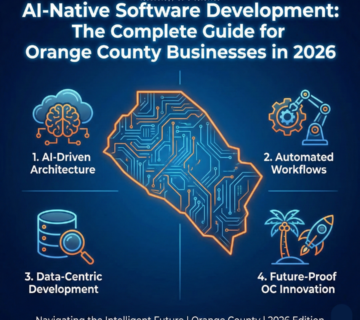Critical Security Gap Discovered in Microsoft Teams Cookie Protection System
🎙️ Dive Deeper with Our Podcast!
Microsoft Teams Cookie Decryption Attack
👉 Listen to the Episode: https://technijian.com/podcast/microsoft-teams-cookie-decryption-attack/
Executive Summary
Security specialists at Tier Zero Security have uncovered a significant vulnerability affecting Microsoft Teams’ cookie encryption mechanism. This discovery has led to the development of a specialized Beacon Object File (BOF) that demonstrates how attackers could potentially compromise user communications without requiring administrative access to targeted systems.
Understanding the Vulnerability
The Core Issue
The fundamental problem lies in Microsoft Teams’ approach to safeguarding authentication cookies. Unlike modern Chromium-based browsers such as Chrome and Edge, which employ robust security measures through a COM-based IElevator service operating with SYSTEM-level privileges, Microsoft Teams continues to utilize the Data Protection API (DPAPI) master key associated with the current user account.
This architectural difference creates a substantial security gap. The weaker protection mechanism means that malicious actors operating with standard user privileges can potentially access and decrypt sensitive authentication data without triggering traditional security barriers that would require elevated permissions.
Technical Architecture
Microsoft Teams leverages the msedgewebview2.exe process, which is built on Chromium technology, to render web content within the application interface. When users authenticate, the platform stores session cookies in a SQLite database format, similar to conventional web browsers.
The critical weakness emerges from how these cookies are protected. The encryption key safeguarding this sensitive data can be accessed through the user’s DPAPI master key, making it considerably more vulnerable to extraction by threat actors who have already compromised a user account.
Attack Methodology Explained
The teams-cookies-bof Tool
Researchers developed the teams-cookies-bof tool by modifying the existing Cookie-Monster-BOF framework specifically to target Microsoft Teams environments. This specialized tool operates within the ms-teams.exe process context, where it systematically searches for the web view child process that maintains an active handle to the cookies database file.
Exploitation Process
The attack unfolds through several coordinated steps:
- Process Integration: The BOF executes within the Teams application environment, avoiding detection mechanisms that monitor external process activity.
- Handle Duplication: The tool creates a duplicate of the file handle, enabling access to the locked cookies database without terminating the Teams application.
- Data Extraction: File contents are read and extracted while the application continues normal operation.
- Decryption: The cookie encryption key is decrypted using the current user’s DPAPI master key.
Overcoming Previous Limitations
Earlier attempts to steal Teams cookies faced a significant obstacle—the cookies file remained locked during active application sessions. The new BOF methodology circumvents this challenge by operating directly within the process space through advanced techniques such as DLL injection or COM hijacking, eliminating the need to terminate the Teams process and thereby reducing the likelihood of detection.
Potential Impact on Organizations
Access Scope
Once attackers successfully obtain decrypted authentication cookies, they gain access to powerful authentication tokens. These tokens enable unauthorized parties to:
- Read Existing Communications: Access to complete chat history and confidential conversations
- Impersonate Legitimate Users: Send messages appearing to come from compromised accounts
- Interact with Microsoft APIs: Leverage Teams, Skype, and Microsoft Graph APIs for broader access
- Access Microsoft 365 Resources: Potentially expand access across the entire Microsoft ecosystem within the user’s permission scope
Post-Exploitation Capabilities
Stolen authentication tokens can be combined with sophisticated post-exploitation frameworks like GraphSpy to dramatically expand the attack surface. This enables threat actors to move laterally across Microsoft services, potentially compromising additional resources and escalating privileges within the organization.
How Technijian Can Help Protect Your Organization
At Technijian, we specialize in comprehensive cybersecurity solutions designed to identify, mitigate, and prevent vulnerabilities like the Microsoft Teams cookie encryption weakness. Our expert team provides end-to-end protection for your digital infrastructure.
Our Security Services
Vulnerability Assessment and Penetration Testing
Our certified security professionals conduct thorough assessments of your Microsoft 365 environment, identifying potential weaknesses before malicious actors can exploit them. We simulate real-world attack scenarios to test your defenses comprehensively.
Endpoint Detection and Response (EDR) Implementation
We deploy and configure advanced EDR solutions specifically tuned to monitor suspicious activities related to Microsoft Teams and other collaboration tools. Our systems detect unusual process behavior, unauthorized handle duplication, and abnormal access patterns to cookie databases.
Security Monitoring and Incident Response
Our 24/7 Security Operations Center (SOC) provides continuous monitoring of your environment, with specialized detection rules for the specific indicators of compromise associated with this vulnerability. When threats are detected, our rapid response team takes immediate action to contain and remediate incidents.
Microsoft 365 Security Hardening
Technijian’s experts implement best-practice security configurations across your Microsoft ecosystem, including conditional access policies, multi-factor authentication enforcement, and advanced threat protection features that add multiple layers of defense.
Employee Security Awareness Training
We provide comprehensive training programs that educate your staff about social engineering tactics, phishing attempts, and suspicious activities that could lead to credential compromise—the first step in many exploitation chains.
Compliance and Security Audit Services
Our team ensures your organization meets industry-specific compliance requirements while maintaining robust security postures. We provide detailed documentation and remediation roadmaps for identified vulnerabilities.
Why Choose Technijian?
- Certified Expertise: Our team holds industry-recognized certifications including CISSP, CEH, OSCP, and Microsoft Security certifications
- Proactive Approach: We don’t wait for breaches to occur—we actively hunt for threats and vulnerabilities
- Custom Solutions: Every organization is unique; we tailor our security strategies to your specific needs and risk profile
- Rapid Response: Our incident response team is available 24/7 with guaranteed response times
- Continuous Improvement: Security is not a one-time project; we provide ongoing monitoring, updates, and optimization
Defensive Measures and Recommendations
Immediate Actions
Organizations currently using Microsoft Teams should prioritize the following security measures:
Deploy Advanced Monitoring Solutions
Implement endpoint detection systems capable of identifying unusual process behavior, particularly focusing on handle duplication activities and unauthorized access attempts to Teams cookie databases.
Implement Zero Trust Architecture
Adopt a zero-trust security model that continuously verifies user identity and device health before granting access to sensitive resources, regardless of network location.
Enable Advanced Logging
Configure comprehensive logging across Microsoft 365 services to ensure complete visibility into authentication events, API access patterns, and unusual user behaviors.
Regular Security Assessments
Conduct periodic security audits and penetration testing to identify potential vulnerabilities before attackers can exploit them.
Long-Term Security Strategies
Multi-Factor Authentication
Enforce MFA across all user accounts, particularly for privileged users and administrators. This adds a critical layer of protection even if cookies are compromised.
Conditional Access Policies
Implement robust conditional access policies that restrict access based on device compliance, geographic location, and risk scoring.
Application Control
Deploy application whitelisting and control mechanisms to prevent unauthorized tools and scripts from executing in your environment.
Network Segmentation
Isolate critical systems and implement network segmentation to limit lateral movement opportunities for attackers who gain initial access.
Frequently Asked Questions (FAQ)
What is a Beacon Object File (BOF)?
A Beacon Object File is a specialized compiled code module designed to execute within command and control frameworks commonly used in penetration testing and red team operations. BOFs allow security researchers and attackers to perform specific tasks with minimal detection footprint.
Does this vulnerability affect all Microsoft Teams users?
Yes, this vulnerability potentially affects all users of the Microsoft Teams desktop application that relies on the current cookie encryption implementation. Organizations using Teams should consider this a relevant security concern requiring immediate attention.
Can antivirus software detect this type of attack?
Traditional signature-based antivirus solutions may struggle to detect these attacks because the malicious code operates within legitimate process contexts. Advanced endpoint detection and response solutions with behavioral analysis capabilities are more effective at identifying this type of threat.
Has Microsoft released a patch for this vulnerability?
Organizations should check Microsoft’s official security bulletins and update center for the latest information regarding patches and security updates. It’s recommended to keep all Microsoft applications updated to the latest versions.
What signs indicate my organization might be compromised?
Warning signs include unusual Teams message activity, unexpected API calls to Microsoft Graph, login attempts from unfamiliar locations, and alerts from security monitoring systems regarding abnormal process behavior or handle manipulation.
How quickly should we respond to this threat?
This should be treated as a high-priority security concern. Organizations should immediately review their security posture, implement enhanced monitoring, and conduct threat hunting activities to identify potential compromise indicators.
Can this attack be performed remotely?
The attack requires initial access to a user’s system with their privilege level. However, this initial access is often achieved through phishing, social engineering, or other remote exploitation techniques, making remote execution scenarios possible.
What other Microsoft services might be affected?
Because compromised authentication tokens can interact with Microsoft Graph APIs, attackers could potentially access other Microsoft 365 services within the user’s permission scope, including Outlook, OneDrive, SharePoint, and other integrated applications.
How does this compare to other recent Microsoft vulnerabilities?
This vulnerability is particularly concerning because it doesn’t require administrative privileges and operates within legitimate application processes, making detection more challenging. The wide deployment of Microsoft Teams in enterprise environments also increases the potential impact.
What should employees do if they suspect compromise?
Employees should immediately report suspicious activity to their IT security team, change their passwords, revoke active sessions, and document any unusual behaviors they observed. Organizations should have clear incident reporting procedures in place.
Is switching to browser-based Teams more secure?
Browser-based Teams implementations may have different security characteristics, but organizations should implement comprehensive security measures regardless of the deployment method. Consult with security professionals to evaluate the best approach for your specific environment.
How can we test if our organization is vulnerable?
Engage qualified security professionals or managed security service providers like Technijian to conduct authorized penetration testing and vulnerability assessments in controlled environments. Never attempt to test vulnerabilities without proper authorization and expertise.
Conclusion
The discovery of this Microsoft Teams cookie encryption vulnerability underscores the ongoing challenges organizations face in securing collaboration platforms. While the technical sophistication of modern attacks continues to evolve, proactive security measures, continuous monitoring, and expert guidance can significantly reduce organizational risk.
Organizations must adopt a comprehensive security strategy that combines technical controls, employee awareness, and professional security services. The complexity of modern threat landscapes requires specialized expertise and continuous vigilance to protect sensitive communications and data.
Don’t wait for a security incident to take action. Contact Technijian today for a comprehensive security assessment of your Microsoft 365 environment. Our team of certified security experts will help you identify vulnerabilities, implement robust defenses, and establish monitoring systems that keep your organization secure.
About Technijian
Technijian is a leading cybersecurity services provider specializing in Microsoft 365 security, threat detection, incident response, and comprehensive security solutions for enterprises. With a team of certified security professionals and state-of-the-art security operations capabilities, we help organizations navigate the complex cybersecurity landscape and protect their most valuable digital assets.
Contact Us:
Visit our website or reach out to our security consultation team to discuss how we can strengthen your organization’s security posture and protect against evolving threats.





